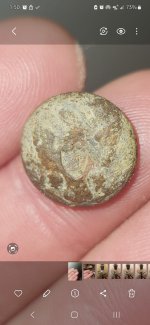Michigan Badger
Gold Member
Here's something I just posted at another site in answer to a Tesoro Cortes owners problem with so many pops and crackles while hunting in discrimination. Maybe this will help somebody here because the basic principle holds true with all brands (Fisher, Whites, Minelab, Nautilus, Garrett, etc.).
Please add your suggestions also 8)
Here's my post:
Nearly all metal detectors crackle and pop while hunting in discrimination mode (some more than others). The discrimination doesn't always eliminate all signals; it will sometimes just deteriorate the unwanted signals more so they're easier to identify as unwanted targets.
Discrimination can be good or bad. It can be great for shallower targets (down to about 4 or 5 inches) but bad for the really deep stuff.
The deeper the target gets, the more its signal deteriorates simply because of ground mineralization. Therefore one could think a deep corroded Indian cent is really a discriminated item (follow me?).
This is one reason why some people find very few old coins and relics.
The answer is to use the machine a lot and study it. It's best to start with low discrimination and dig almost all targets at first. Then as you learn the TID readings (patterns) and sounds you can turn the discrimination up.
Hope this helps.
Please add your suggestions also 8)
Here's my post:
Nearly all metal detectors crackle and pop while hunting in discrimination mode (some more than others). The discrimination doesn't always eliminate all signals; it will sometimes just deteriorate the unwanted signals more so they're easier to identify as unwanted targets.
Discrimination can be good or bad. It can be great for shallower targets (down to about 4 or 5 inches) but bad for the really deep stuff.
The deeper the target gets, the more its signal deteriorates simply because of ground mineralization. Therefore one could think a deep corroded Indian cent is really a discriminated item (follow me?).
This is one reason why some people find very few old coins and relics.
The answer is to use the machine a lot and study it. It's best to start with low discrimination and dig almost all targets at first. Then as you learn the TID readings (patterns) and sounds you can turn the discrimination up.
Hope this helps.
Amazon Forum Fav 👍
Upvote
0





 The wife is loving it. She goes around singing "It's beginning to look a lot like Christmas.."
The wife is loving it. She goes around singing "It's beginning to look a lot like Christmas.."
 umm not make me a millionaire, but hey I am getting there
umm not make me a millionaire, but hey I am getting there 
